Home>Home Maintenance>How To Pay For Major Home Repairs With Bad Credit


Home Maintenance
How To Pay For Major Home Repairs With Bad Credit
Modified: March 6, 2024
Learn how to finance major home repairs even if you have bad credit. Our guide on home maintenance provides options to pay for essential upgrades.
(Many of the links in this article redirect to a specific reviewed product. Your purchase of these products through affiliate links helps to generate commission for Storables.com, at no extra cost. Learn more)
Introduction
Keeping your home in good repair is essential for its long-term value and your comfort. However, major home repairs can often come with a hefty price tag. If you find yourself in need of major home repairs but have bad credit, you may be wondering how to pay for them. Fortunately, there are financing options available that can help you cover the costs, even with less-than-perfect credit.
In this article, we will explore different financing options for major home repairs when you have bad credit. Understanding these options can give you the tools you need to make informed decisions about how to tackle those necessary repairs.
Before we delve into the financing options, let’s first clarify what major home repairs entail. Major home repairs typically refer to significant structural or mechanical issues that require professional intervention. This can include repairs to the foundation, roof, plumbing, electrical systems, heating and cooling systems, or major appliances.
Now, let’s address the elephant in the room: bad credit. Having bad credit can make it more challenging to get approved for traditional financing options, such as loans or credit cards. Lenders and credit card issuers often use credit scores to assess a borrower’s creditworthiness. A low credit score can make them view you as a risky borrower and be less willing to extend credit.
However, while bad credit can present obstacles, it does not mean that you are out of options. There are alternative financing options specifically designed for individuals with less-than-ideal credit scores that can help you pay for major home repairs.
In the next sections, we will explore six potential financing options for major home repairs with bad credit. Each option comes with its own benefits, requirements, and considerations. By understanding the pros and cons of each, you can select the one that best suits your needs and financial situation.
Key Takeaways:
- Even with bad credit, you can finance major home repairs through options like specialized loans, credit cards, and government programs. Research, compare, and negotiate to find the best solution for your needs.
- Improving your credit score over time can open up more financial opportunities. Be patient, communicate openly, and explore flexible payment options with contractors to make your repair projects more affordable.
Understanding Major Home Repairs
Before we dive into the financing options for major home repairs, let’s first gain a better understanding of what constitutes a major repair. Major home repairs typically refer to significant issues that affect the structure or functionality of your home and require professional intervention.
These repairs can vary greatly in scope and cost, but some common examples include:
- Roof repairs or replacement: Damaged or aging roofs can lead to leaks, water damage, and compromised structural integrity.
- Foundation repairs: Cracks, sinking, or shifting foundation can cause structural instability and affect the entire structure of your home.
- Plumbing repairs: Leaks, burst pipes, or faulty plumbing systems can lead to water damage, mold growth, and high utility bills.
- Electrical repairs: Faulty wiring, outdated electrical systems, or electrical malfunctions pose fire hazards and can result in power outages or electrical damage.
- Heating and cooling repairs: Issues with your HVAC system can lead to discomfort, inefficient energy usage, and higher utility costs.
- Appliance repairs or replacements: Broken or malfunctioning appliances, such as refrigerators, ovens, or washing machines, can disrupt daily routines and add unnecessary expenses.
It’s important to address these major repairs promptly to prevent further damage and maintain the value of your home. Ignoring or delaying necessary repairs can lead to more extensive and costly issues down the line.
When faced with major repairs, it’s essential to consult with professionals in the respective fields. They can assess the extent of the damage, provide accurate cost estimates, and recommend the most appropriate repair solutions.
Once you have a clear understanding of the repairs needed and their associated costs, you can begin exploring financing options to fund these repairs. While bad credit can make this process more challenging, there are still avenues available that can help you navigate these financial hurdles and ensure that your home’s repair needs are met.
The Impact of Bad Credit on Financing Options
Having bad credit can significantly impact your ability to secure traditional financing options for major home repairs. Lenders and credit card issuers often use credit scores as a key factor in their decision-making process. A low credit score can indicate a higher risk of defaulting on loan payments, making lenders hesitant to approve your application.
When you have bad credit, you may encounter the following challenges when seeking financing options for major home repairs:
- Higher interest rates: Lenders may offer loans or credit cards with higher interest rates to compensate for the perceived risk of lending to someone with bad credit. This can result in higher monthly payments and increased overall costs.
- Limited loan options: Some lenders may be unwilling to approve loans for individuals with bad credit, limiting your options for securing the necessary funds.
- Lower credit limits: If you are approved for a credit card, your credit limit may be lower than you would prefer. This can restrict your ability to cover the full cost of the repairs.
- Stricter eligibility requirements: Lenders may enforce stricter eligibility requirements for individuals with bad credit, such as higher income thresholds or additional collateral requirements.
- Negative impact on future credit: If you miss payments or default on loans, it can further damage your credit score and make it even more challenging to secure financing in the future.
Despite these challenges, it’s important to remember that bad credit does not mean you have no options. There are alternative financing options specifically designed for individuals with less-than-ideal credit scores.
As you explore these financing options, it’s essential to carefully review the terms, interest rates, repayment plans, and any associated fees. Be realistic about your ability to make payments and weigh the potential benefits and drawbacks of each option. By doing so, you can make an informed decision that aligns with your financial situation and goals.
Now that we understand how bad credit can impact financing options, let’s explore the potential solutions for funding major home repairs with bad credit.
Exploring Financing Options for Major Home Repairs with Bad Credit
When faced with major home repairs and bad credit, it’s important to explore alternative financing options. While traditional loans and credit cards may be challenging to obtain, there are still several avenues available that can help you cover the costs of your repairs.
Here are six potential financing options to consider:
- Home Repair Loans: Some lenders specialize in providing home repair loans to individuals with bad credit. These loans are specifically designed for covering the costs of major home repairs. While interest rates may be higher compared to traditional loans, they can provide you with the necessary funds to complete your repair projects.
- Credit Cards for Home Repairs: Look for credit cards that offer favorable terms and conditions for home improvement expenses. Some credit card issuers have specific credit cards targeted towards home renovations. These cards may offer promotional periods with low or zero interest rates or provide rewards or cashback for home repair expenses.
- Home Equity Line of Credit (HELOC): If you have equity in your home, you may be eligible for a home equity line of credit (HELOC). A HELOC allows you to borrow against the value of your home and use the funds for major home repairs. Keep in mind that defaulting on a HELOC can result in the loss of your home, so it’s important to carefully consider your ability to make payments before opting for this financing option.
- Personal Loans for Home Repairs: Some lenders offer personal loans that can be used for various purposes, including major home repairs. While the interest rates may be higher compared to traditional loans, personal loans can provide you with the necessary funds without requiring collateral.
- Government Assistance Programs: Check if there are any government assistance programs available in your area that provide financial aid for home repairs. These programs are often designed to assist low-income individuals or those with specific qualifications. Research online or contact local government agencies to explore the options available to you.
- Negotiating with Contractors and Service Providers: In some cases, contractors and service providers may offer financing options or flexible payment plans. It’s worth discussing your financial situation and exploring the possibility of arranging a payment plan that suits your budget.
Each financing option has its own set of requirements, benefits, and considerations. It’s important to carefully evaluate each option based on your specific financial situation and needs. Consider factors such as interest rates, repayment terms, loan amounts, and the overall cost of borrowing.
In the next sections, we will delve deeper into each financing option, providing you with a comprehensive understanding of how they work and what you need to consider when pursuing them.
Option 1: Home Repair Loans
Home repair loans are specifically designed to help homeowners cover the costs of major home repairs. These loans can be a viable option for individuals with bad credit who need funds for their repair projects.
Here’s what you need to know about home repair loans:
- Specialized lenders: There are lenders who specialize in offering home repair loans to individuals with bad credit. These lenders understand the unique challenges faced by homeowners with bad credit and are more willing to work with them.
- Loan amounts: The loan amount you can qualify for will depend on various factors, including your credit score, income, and the value of your home. It’s important to have a clear understanding of the total cost of your repairs to ensure you secure a loan that covers your expenses.
- Interest rates: With bad credit, you may face higher interest rates compared to borrowers with good credit. It’s crucial to carefully review the interest rates offered by different lenders to ensure you select the most favorable option.
- Repayment terms: Home repair loans generally come with fixed repayment terms, usually ranging from a few years to several years. Make sure you can comfortably afford the monthly payments within your budget before accepting the loan.
- Requirements: While lenders specializing in home repair loans for bad credit may be more flexible with their eligibility criteria, they may still require proof of income, documentation of the repairs needed, and other relevant financial information.
Before applying for a home repair loan, it’s important to do your research and compare different lenders. Consider factors such as interest rates, loan terms, repayment flexibility, and any associated fees. It’s also wise to read customer reviews and check the lender’s reputation to ensure you are working with a reputable and trustworthy institution.
Remember, taking on a loan is a serious financial commitment, and you should only borrow what you can afford to repay. Analyze your budget, assess your ability to make timely payments, and make an informed decision based on your financial situation.
By utilizing a home repair loan, you can secure the necessary funds to address your major home repairs, regardless of your credit score. However, it’s crucial to use the funds responsibly and ensure that the repairs are completed by reputable professionals to maintain the value and safety of your home.
Option 2: Credit Cards for Home Repairs
Credit cards can be a convenient and flexible financing option for home repairs, especially when you have bad credit. By using a credit card specifically designed for home repairs, you can access funds to cover the costs of your projects.
Here’s what you need to know about using credit cards for home repairs:
- Specialized credit cards: Some credit card issuers offer specialized cards for home repairs or home improvement expenses. These cards may come with benefits such as promotional periods with low or zero interest rates, rewards or cashback programs, and discounts at home improvement stores.
- Interest rates: It’s important to pay attention to the interest rates associated with the credit card. Credit cards for home repairs may initially offer low or zero introductory interest rates, but be aware of any rate increases after the promotional period ends.
- Credit limits: The credit limit on a home repair credit card may vary depending on your creditworthiness and the specific card issuer. Ensure that the credit limit is sufficient to cover your repair expenses.
- Repayment terms: Credit cards typically come with minimum monthly payments, but it’s advisable to pay more than the minimum to reduce interest costs. Evaluate your budget and determine how quickly you can realistically repay the amount borrowed to avoid accumulating high interest charges.
- Eligibility requirements: Credit card issuers may have their own eligibility requirements, including a minimum credit score. However, there are credit cards available specifically for individuals with bad credit, so explore your options and find a credit card that suits your financial situation.
Before choosing a credit card for your home repairs, compare different offers and consider the specific features and benefits, interest rates, credit limits, and associated fees. Determine whether the promotional offers align with your intended repayment timeframe and budget.
Using a credit card for home repairs can provide you with the flexibility to cover your expenses and potentially earn rewards or take advantage of promotional offers. However, it’s essential to use the credit card responsibly and avoid maxing out the available credit, as this can negatively impact your credit utilization ratio.
Make sure to read the terms and conditions of the credit card agreement carefully, including any fine print, fees, and penalties. By using credit cards strategically and making timely payments, you can effectively finance your home repairs and improve your credit score by demonstrating responsible credit management.
Remember, it’s crucial to have a solid repayment plan in place when using credit cards for home repairs. If you are unable to make the monthly payments or if the interest rates become unmanageable, consider exploring alternative financing options to prevent further financial strain.
Consider applying for a home improvement loan specifically designed for people with bad credit. These loans often have higher interest rates, but can provide the funds needed for major repairs.
Option 3: Home Equity Line of Credit (HELOC)
If you have accumulated equity in your home, a home equity line of credit (HELOC) can be a viable financing option for major home repairs, even with bad credit. A HELOC allows you to borrow against the equity you have built in your home and use the funds for various expenses, including home repairs.
Here’s what you need to know about utilizing a HELOC for your home repairs:
- Using home equity: Home equity is the difference between the current market value of your home and the outstanding balance on your mortgage. With a HELOC, you can tap into the equity and borrow against it to fund your repair projects.
- Lower interest rates: HELOCs often come with lower interest rates compared to other financing options, as they are typically secured by the value of your home. This can provide you with a more affordable way to finance your major home repairs.
- Flexible borrowing limits: The amount you can borrow with a HELOC depends on the available equity in your home. Lenders typically allow you to borrow up to a certain percentage of your home’s appraised value, minus any outstanding mortgage balances.
- Draw period and repayment: HELOCs typically have a draw period during which you can borrow funds and a repayment period to pay back the borrowed amount. During the draw period, you can access the funds as needed, while the repayment period requires you to make regular payments to repay the borrowed amount and interest.
- Collateral: With a HELOC, your home serves as collateral for the loan. This means that if you default on the payments, the lender has the right to foreclose on your property. It’s crucial to carefully consider your ability to make payments and assess your financial stability before obtaining a HELOC.
Before applying for a HELOC, it’s essential to research and compare different lenders. Consider factors such as interest rates, fees, repayment terms, and draw periods. It’s also advisable to consult with a financial advisor or mortgage professional who can guide you through the process and help you make an informed decision.
While utilizing a HELOC for major home repairs can be advantageous, it’s important to use the funds responsibly and only borrow what you need. Carefully plan your repair projects, obtain accurate cost estimates, and ensure that the repairs will enhance the value and comfort of your home.
Remember, defaulting on a HELOC can have serious consequences, including the potential loss of your home. Make timely payments and develop a realistic repayment plan to ensure you can meet your financial obligations.
A HELOC can provide you with the necessary funds to address your major home repairs, leveraging the equity you have built in your home. However, it’s crucial to fully understand the terms and commitment involved before proceeding with this financing option.
Option 4: Personal Loans for Home Repairs
If you have bad credit and require funds for major home repairs, a personal loan can be a viable option. Personal loans are unsecured loans that you can use for various purposes, including home repairs. While bad credit may pose some challenges in obtaining a personal loan, there are lenders who specialize in providing loans to individuals with less-than-perfect credit.
Here’s what you need to know about using personal loans for home repairs:
- Flexible use of funds: Personal loans provide you with the flexibility to use the funds for any expenses, including major home repairs. You can borrow the necessary amount and allocate it towards your repair projects based on your needs.
- Higher interest rates: With bad credit, you may encounter higher interest rates compared to borrowers with good credit. However, by comparing different lenders and loan offers, you can find a more affordable option that suits your financial situation.
- Loan amounts: The loan amount you can secure will depend on factors such as your credit score, income, and the lender’s policies. It’s important to accurately estimate the total cost of your repairs to ensure you borrow an amount that covers your expenses.
- Repayment terms: Personal loans typically come with fixed repayment terms, usually ranging from a few years to several years. Evaluate your budget and calculate the monthly payments to ensure they fit comfortably within your financial capabilities.
- Eligibility requirements: Lenders who specialize in providing personal loans to individuals with bad credit may have more flexible eligibility requirements. While a minimum credit score might be required, they also consider other factors such as income and overall financial stability.
Before applying for a personal loan for your home repairs, it’s important to research different lenders and compare loan offers. Look for lenders who specialize in providing loans to individuals with bad credit and assess their interest rates, fees, repayment terms, and customer reviews.
It’s essential to carefully consider your financial situation and ability to make loan repayments. Create a realistic budget and repayment plan to ensure that you can meet your financial obligations without adding additional stress to your finances.
By utilizing a personal loan, you can gain access to the necessary funds to complete your major home repairs. However, it’s crucial to use the funds responsibly and ensure that you complete the repairs within the allocated budget.
Remember, improving your credit score can open up more options for financing in the future. By making timely payments and managing your personal loan responsibly, you can work towards rebuilding your credit and enhancing your financial stability.
Option 5: Government Assistance Programs
If you have bad credit and need financial assistance for major home repairs, exploring government assistance programs can be a valuable option. These programs are designed to provide financial aid to individuals with specific qualifications and low-income individuals who require assistance with their home repairs.
Here’s what you need to know about government assistance programs for home repairs:
- Availability: Government assistance programs can vary by region and may have specific eligibility criteria. Research online or contact local government agencies to explore the programs available in your area.
- Qualifications: Government programs often have specific qualifications related to income, property ownership, age, disability, or other specific circumstances. Assess your situation to determine if you meet the criteria for any available program.
- Types of assistance: Government programs can offer various types of assistance, such as grants, loans, or subsidies. These programs may cover a portion of the repair costs or provide financial aid to help you complete your repairs.
- Application process: Each program will have its own application process, documentation requirements, and timelines. Follow the instructions provided by the program and ensure that you provide all necessary documents to support your application.
- Limitations: Keep in mind that government assistance programs often have limited funding and may receive a high volume of applications. It’s important to apply early and be prepared for the possibility that not all applicants will receive funding.
Government assistance programs can provide a valuable source of financial aid for your major home repairs. However, it’s important to recognize that these programs may have limited availability and specific qualifications that must be met.
Take the time to thoroughly research and understand the requirements and benefits of any government assistance program you plan to apply for. You may also consider reaching out to local housing agencies or nonprofit organizations that specialize in housing assistance, as they may provide additional guidance and resources.
It’s crucial to be patient throughout the application process, as it may take time for decisions and funding to be allocated. Be prepared to provide any necessary documentation and communicate promptly with the program administrators to ensure a smooth application process.
By exploring government assistance programs, you may find the financial support needed to complete your major home repairs despite having bad credit. These programs can significantly alleviate the financial burden associated with repairs, allowing you to maintain the safety and value of your home.
Read more: How Many Women Major In Home Decor
Option 6: Negotiating with Contractors and Service Providers
When you have bad credit and are facing major home repairs, it’s worth considering the option of negotiating with contractors and service providers. By effectively communicating with them and exploring flexible payment options, you may be able to receive the necessary repairs at a more manageable cost.
Here’s what you need to know about negotiating with contractors and service providers for your home repairs:
- Open communication: Approach contractors and service providers with open and honest communication about your financial situation. Explain your needs and inquire if they offer any financing options or payment plans that can accommodate your budget.
- Multiple quotes: Obtain multiple quotes from different contractors and service providers for your repair project. This allows you to compare prices and negotiate better terms, potentially leading to more affordable options.
- Flexible payment plans: Some contractors or service providers may be willing to offer a flexible payment plan that allows you to pay in installments or spread out the cost of the repairs over a longer period. Discuss your financial constraints and explore if such arrangements can be made.
- Discounts or promotions: Inquire if there are any ongoing discounts or promotions that can help reduce the overall cost of the repairs. Some contractors may offer seasonal discounts or referral programs that can provide savings on your project.
- Consider partial repairs: If the full repair cost is beyond your budget, discuss with the contractor if there are any partial repairs or temporary solutions that can address the most urgent aspects of the repair project. This can help you prioritize and gradually complete the necessary repairs.
Negotiating with contractors and service providers requires effective communication, a proactive approach, and a willingness to explore different options. It’s important to establish clear expectations and ensure all agreements are put in writing to avoid misunderstandings.
Remember, not all contractors or service providers may be open to negotiation or offer flexible payment options. It’s crucial to research and choose reputable professionals with a track record of providing quality work and customer satisfaction.
By negotiating with contractors and service providers, you may be able to find more affordable options for your major home repairs. While this option may not provide immediate financial assistance, it can help you secure the necessary repairs within your budget constraints.
Be proactive in reaching out to contractors and service providers, communicate your needs, and explore different payment options. With good negotiation skills and a willingness to find common ground, you may be able to complete your repairs without the need for traditional financing.
Tips for Getting Approved with Bad Credit
If you have bad credit and are seeking financing options for major home repairs, it’s important to take steps to improve your chances of getting approved. While bad credit can present challenges, implementing the following tips can increase your likelihood of securing financing despite your credit history:
- Check your credit report: Obtain a copy of your credit report and review it for any errors or discrepancies. Dispute any inaccuracies and work towards resolving any outstanding debts.
- Build a positive payment history: Making consistent, on-time payments on your existing credit obligations can gradually improve your credit score. Prioritize timely payments to demonstrate your commitment to financial responsibilities.
- Reduce outstanding debt: Paying down existing debts can improve your debt-to-income ratio, which is an important factor lenders consider when evaluating your creditworthiness. Focus on reducing high-interest debts, such as credit card balances.
- Save for a larger down payment: Putting down a larger down payment can reduce the perceived risk for lenders and increase your chances of loan approval. Set aside funds specifically for your home repairs to demonstrate your financial commitment.
- Seek out specialized lenders: Look for lenders who specialize in providing loans or credit cards to individuals with bad credit. These lenders understand the unique circumstances and may be more willing to work with you.
- Consider a co-signer: Having a co-signer with good credit can improve your chances of getting approved for financing. A co-signer agrees to be responsible for the loan if you default, providing added assurance to the lender.
- Show proof of income and stability: Demonstrating a stable income and employment history can help instill confidence in lenders. Gather necessary documents such as pay stubs, tax returns, and employment verification letters.
- Research and compare lenders: Don’t settle for the first financing option you come across. Research different lenders, their terms, interest rates, and repayment plans. Compare your options to find the best fit for your financial situation.
- Seek professional guidance: Consider working with a financial advisor or credit counselor to develop a personalized plan to improve your credit and navigate the financing process. They can provide valuable insights and guidance tailored to your specific circumstances.
Remember, rebuilding your credit takes time and effort. Be patient and focus on consistently improving your credit habits while exploring suitable financing options. Taking proactive steps to demonstrate financial responsibility can increase your chances of getting approved for financing, even with bad credit.
Lastly, it’s important to use any financing options responsibly and within your means. Borrow only what you can afford to repay, make timely payments, and prioritize completing your major home repairs to ensure the longevity and value of your home.
Conclusion
When faced with major home repairs and bad credit, it’s easy to feel overwhelmed and discouraged. However, there are numerous financing options available to help you cover the costs and address your repair needs. By understanding these options and implementing the tips provided, you can increase your chances of securing financing, regardless of your credit history.
Home repair loans, credit cards for home repairs, home equity lines of credit (HELOCs), personal loans, government assistance programs, and negotiating with contractors are all potential avenues to explore. Each option has its own benefits, considerations, and requirements. It’s crucial to weigh the pros and cons of each option based on your financial situation and needs.
Improving your credit score over time can also open up more financial opportunities in the future. Take steps to build positive credit habits, reduce outstanding debts, and make timely payments to rebuild your creditworthiness.
Additionally, don’t underestimate the power of communication and negotiation. Discussing your financial situation with contractors and service providers, seeking out flexible payment options, and exploring discounts or promotions can help make your repair projects more affordable.
Remember to approach the financing process with careful consideration and realistic expectations. Analyze your budget, assess your ability to make payments, and avoid taking on more debt than you can comfortably manage.
In conclusion, bad credit does not need to stand in the way of addressing your major home repairs. Through thorough research, strategic planning, open communication, and responsible financial management, you can find viable financing options to safeguard the value and safety of your home.
Consult with professionals, seek guidance, and make informed decisions that align with your financial goals. With determination and the right strategies, you can overcome the challenges of bad credit and embark on successful home repair projects.
Frequently Asked Questions about How To Pay For Major Home Repairs With Bad Credit
Was this page helpful?
At Storables.com, we guarantee accurate and reliable information. Our content, validated by Expert Board Contributors, is crafted following stringent Editorial Policies. We're committed to providing you with well-researched, expert-backed insights for all your informational needs.

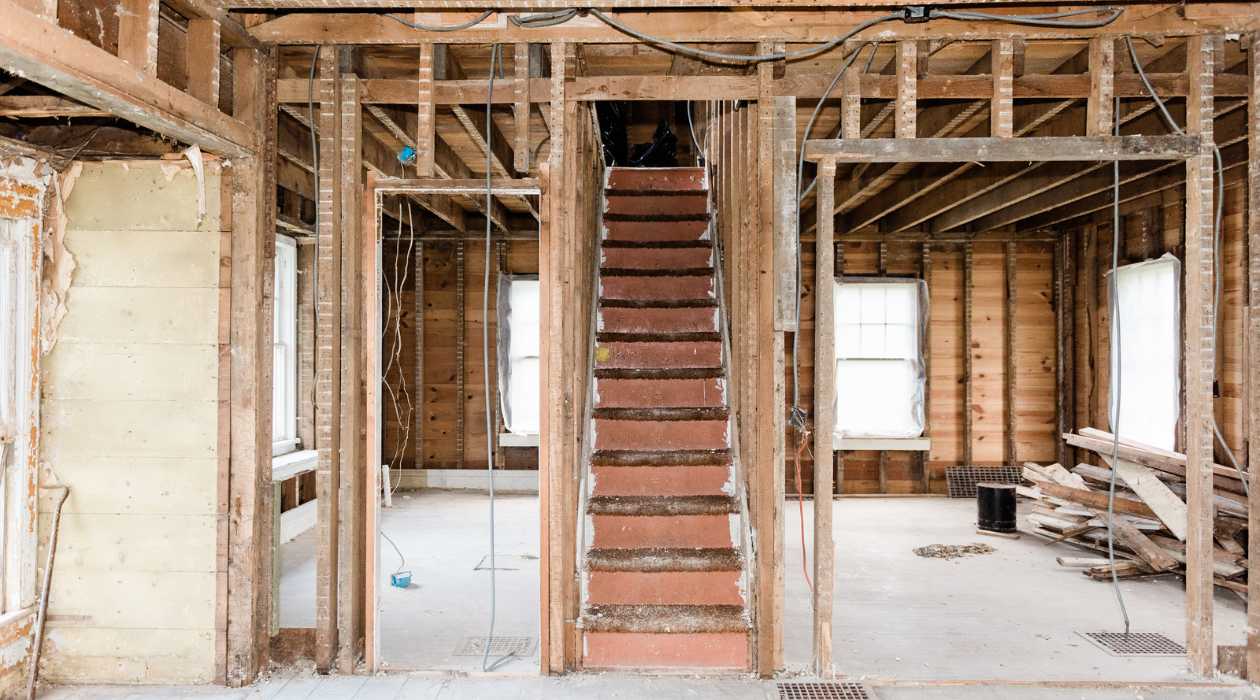
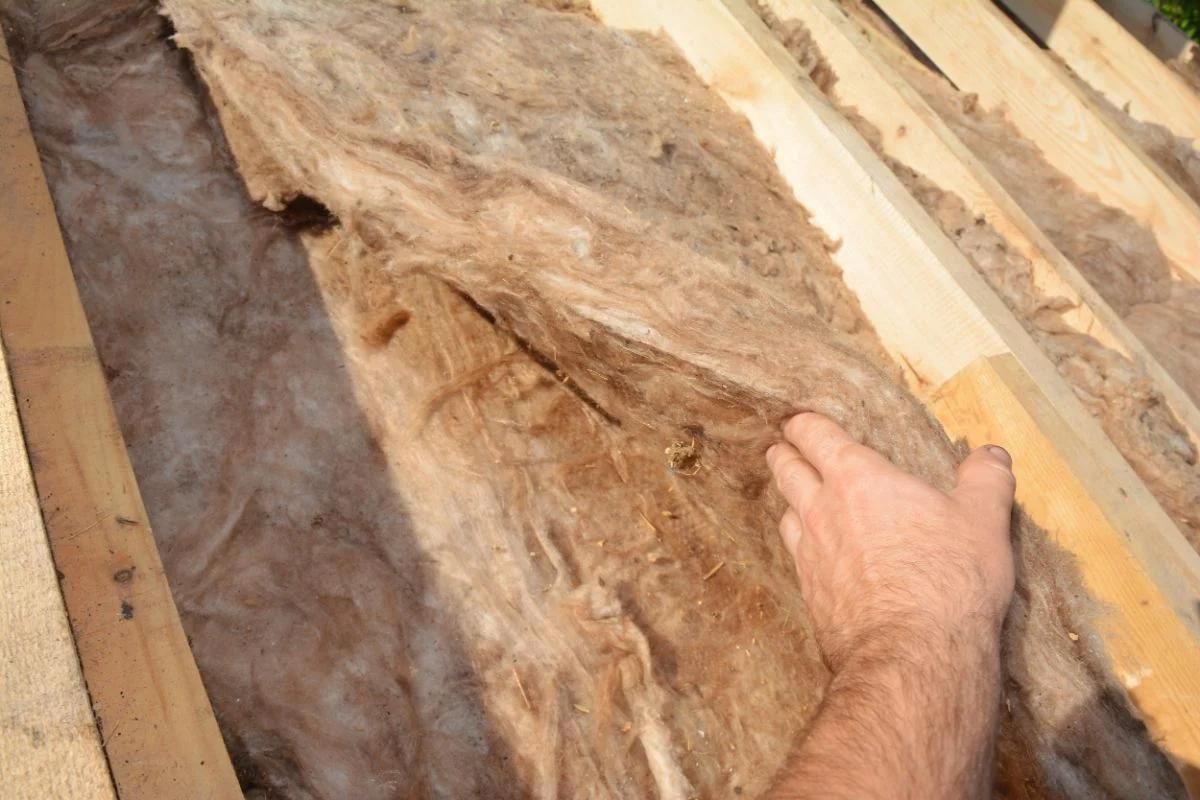
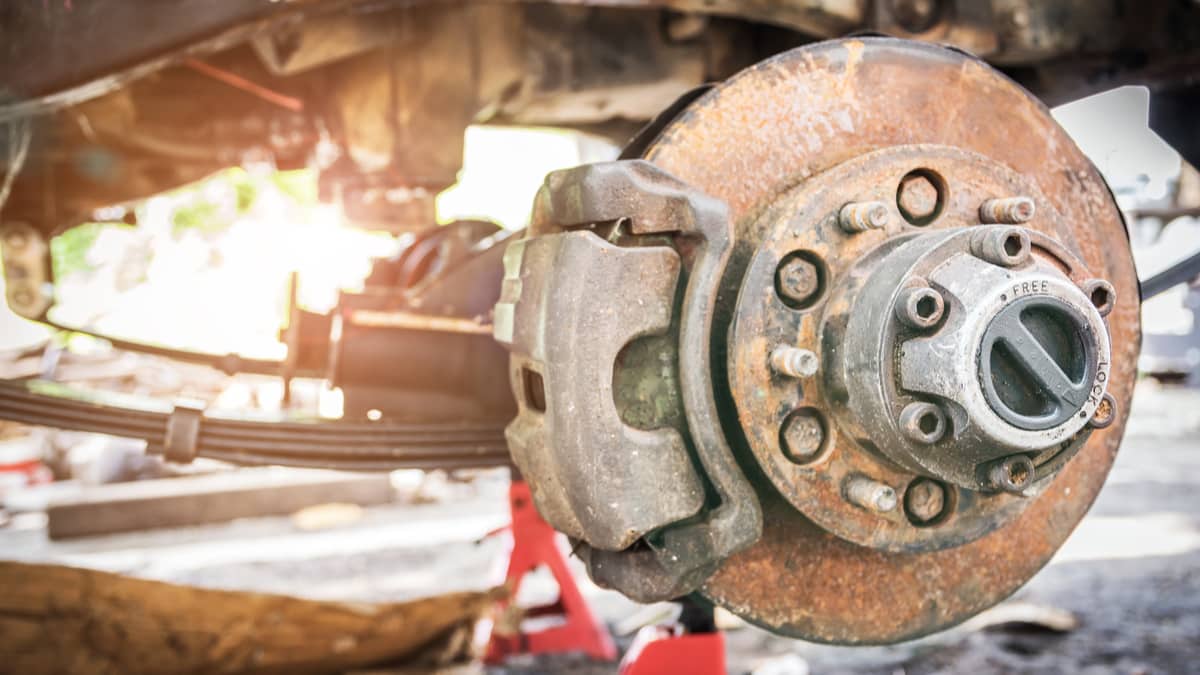


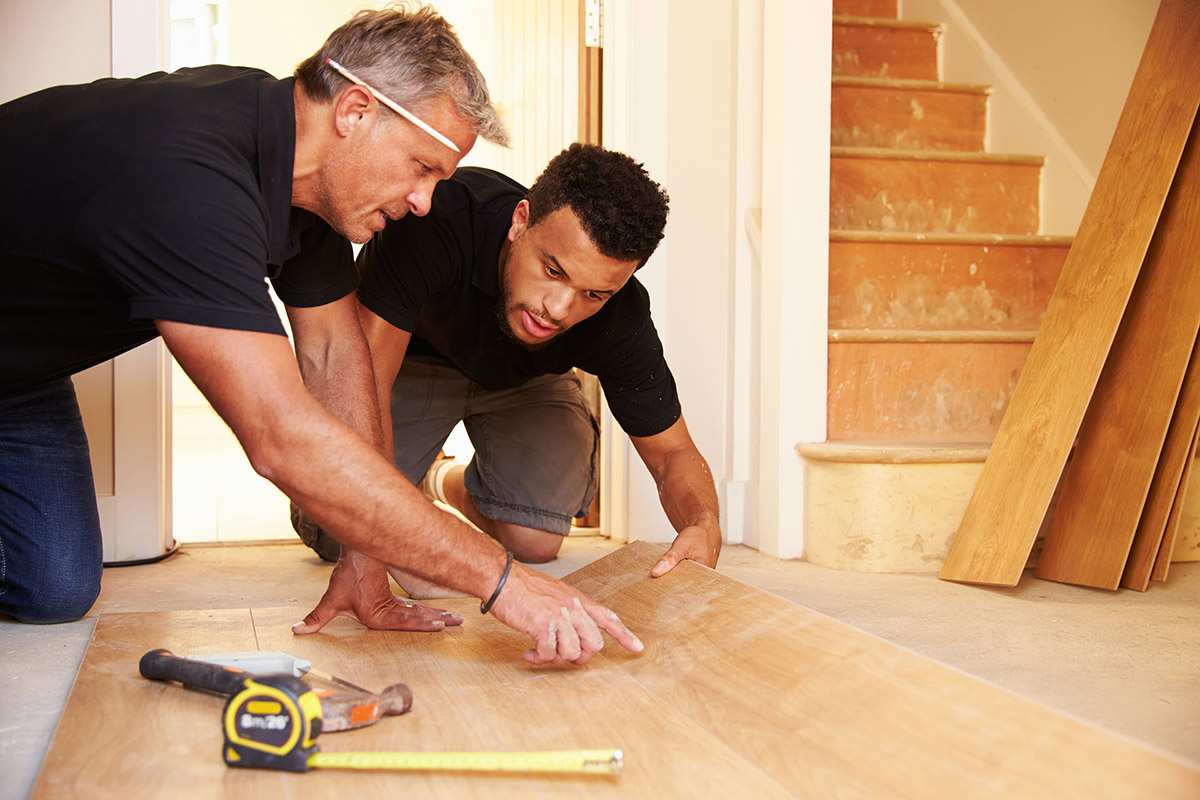


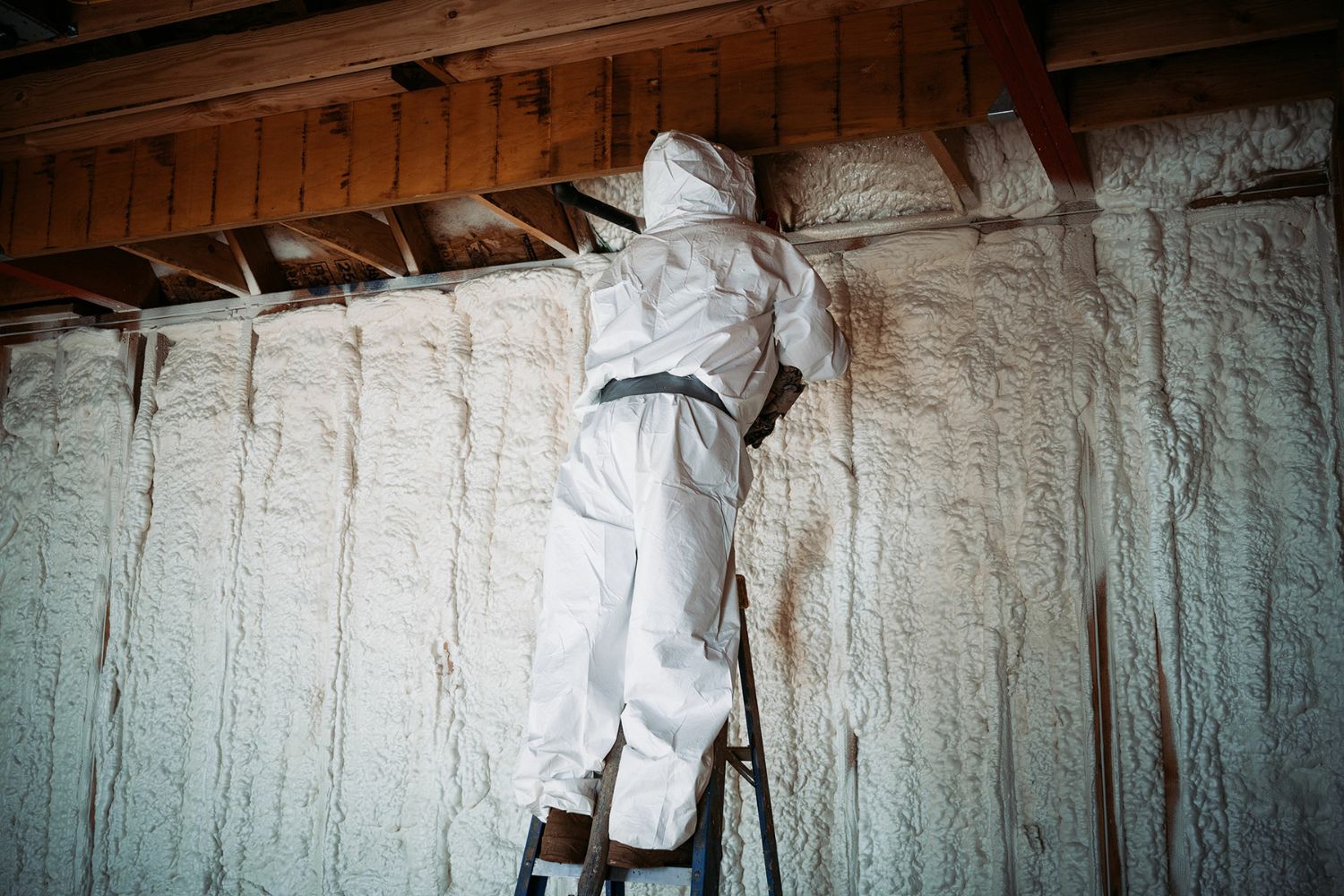

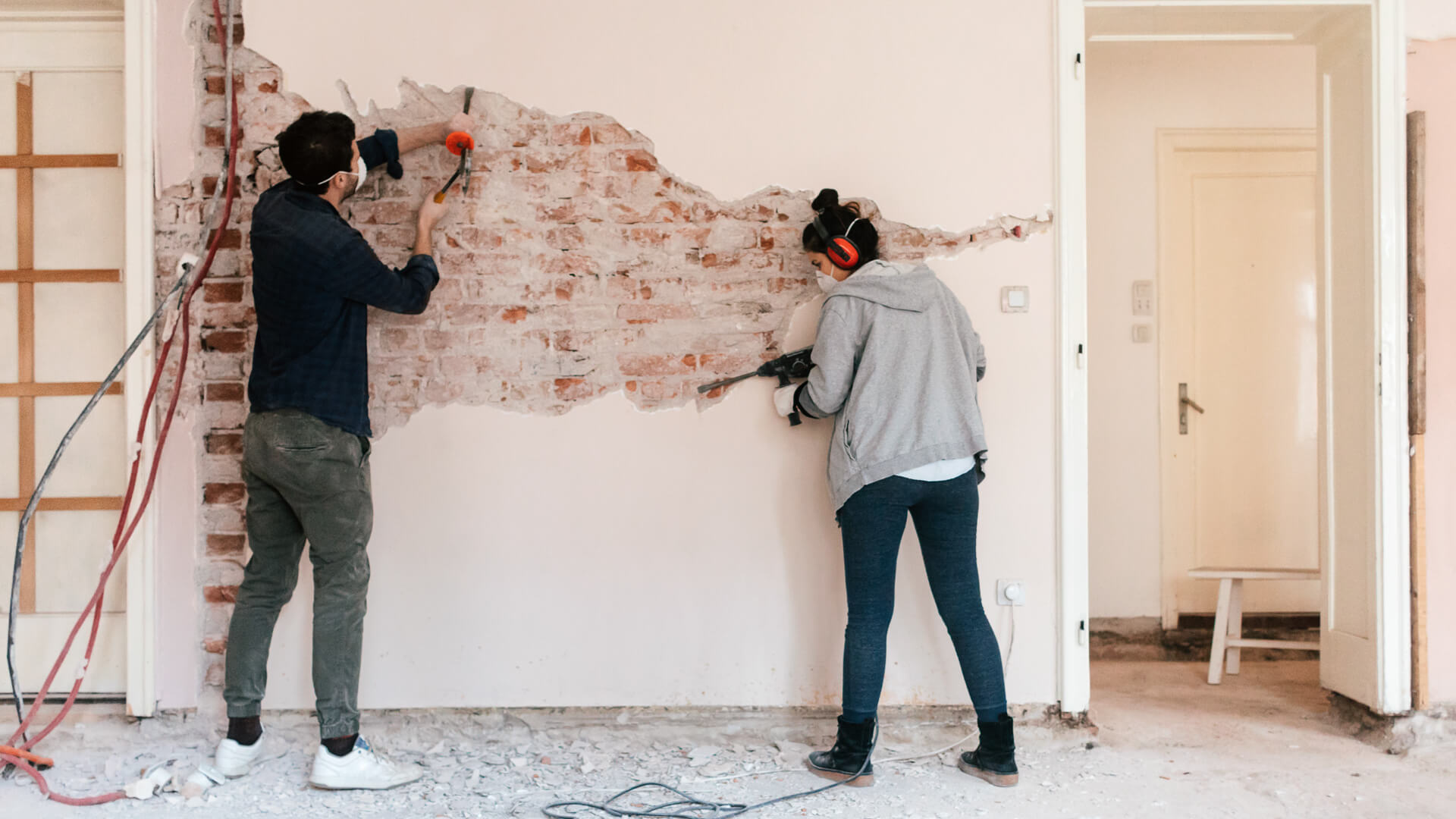


0 thoughts on “How To Pay For Major Home Repairs With Bad Credit”